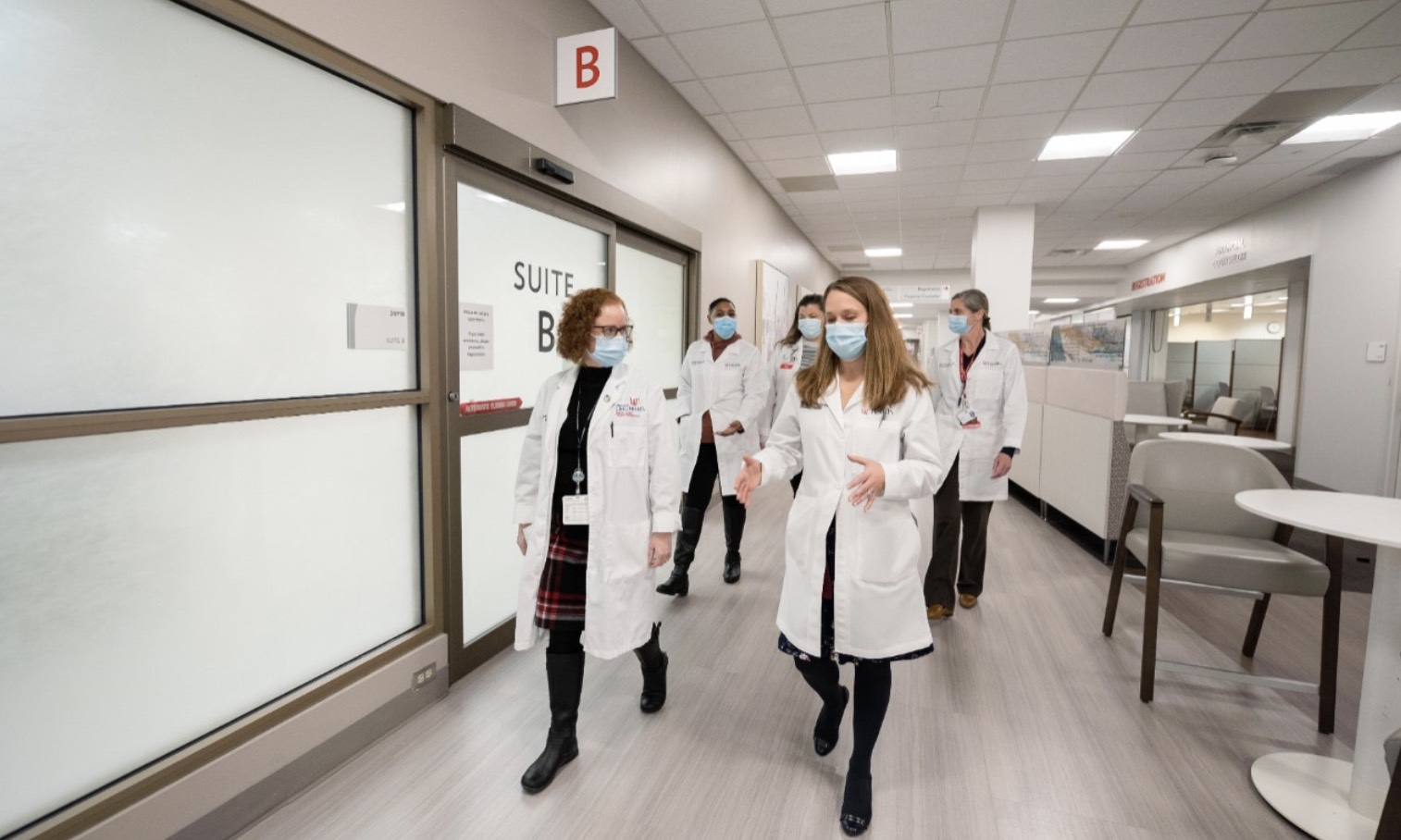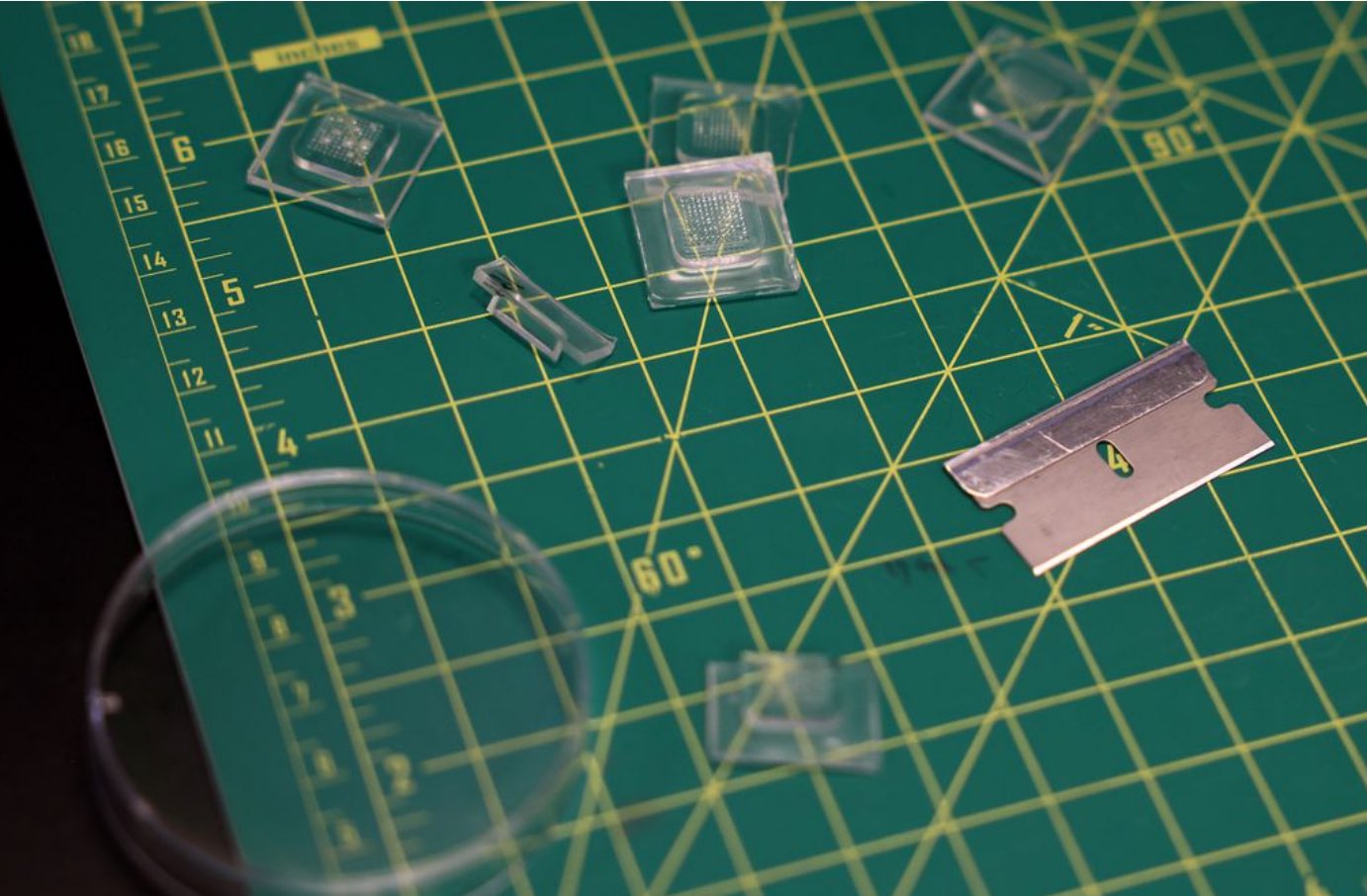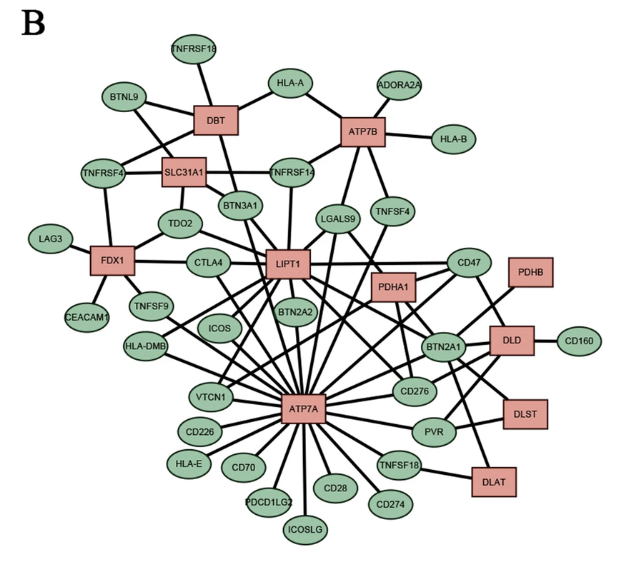Dr. Poznansky gives an invited research talk about latest advances at VIC with the development of a novel self-assembling vaccine platform at the Vaccines R and D international summit in Boston this month. This work is partnered with Voltron Therapeutics Inc. The company and its leadership are supporting product development and progress towards first in human studies with a self-assembling vaccine for cervical and head and neck cancer.
Investigating Cancer Immunotherapy Effects on COVID-19 Outcomes
Recent findings from research led by University of Cincinnati researcher Trisha Wise-Drapher illuminate the effect of immunosuppression and immunotherapy for patients with cancer and COVID-19. This investigation began with a primary focus on understanding the effects of immunotherapy on COVID-19 severity, specifically if immunotherapy treatment is associated with worse clinical outcomes for cancer patients with COVID-19. The data of 12,046 patients was reviewed and evaluated with metrics including: whether patients were admitted to the hospital, if they required oxygen, or required ICU care. These analyses suggest that patients infected with SARS-CoV-2 that had baseline immunosuppression and followed immunotherapy treatment may have poorer clinical outcomes, whereas patients with immunotherapy alone had no change in outcome quality.
New approaches to needle-less vaccine delivery
Dr. Poznansky quoted in an article in the Boston Globe about new approaches to needleless vaccine delivery. VIC has its own project in this arena in collaboration with Dr. Natalie Artzi at Brigham and Womens Hospital.
A novel cuproptosis-related immune checkpoint gene signature identification and experimental validation in hepatocellular carcinoma
As current staging systems for cancer are typically found through anatomical evaluations of the disease, stratification of patients for treatment and further therapy strategies prove difficult. Much potential remains in cancer biomarker research for the identification of prognostic gene expression signatures capable of classifying tumor subgroups via their biological counterparts. With the advancements in genomic and transcriptomic technologies, researchers are making great discoveries in cancer biomarkers for detection, prediction of therapeutic response and prognoses of cancer. Recent research highlights a new cuproptosis (copper-induced death) related immune checkpoint gene signature recently investigated as a potential biomarker for anticancer therapy for hepatocellular carcinoma.





